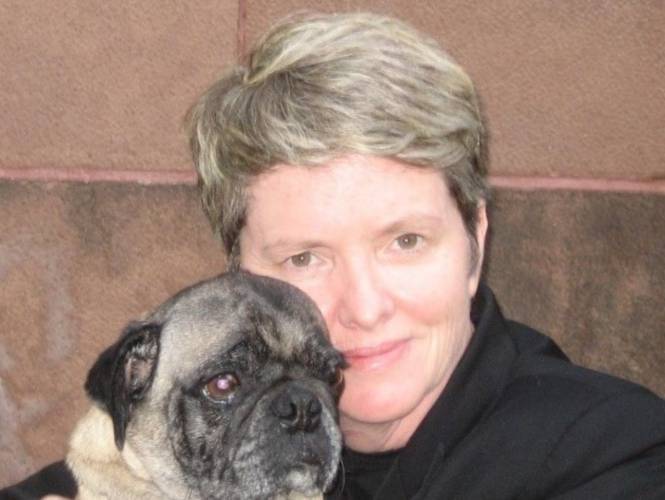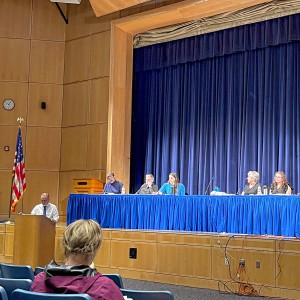My Turn: ‘Nobody’s right if everybody’s wrong’

J.M. Sorrell
| Published: 04-03-2024 4:30 PM |
‘For What It’s Worth” is a classic Buffalo Springfield song. It was written in response to the November 1966 Sunset Strip curfew riots. Stephen Stills wrote the song, and he first thought to write about soldiers and civilians in Vietnam, but he changed course with the lyrics when teens and young adults peacefully protested the closing of a West Hollywood nightclub and a curfew was imposed to get them off the streets.
The Los Angeles Watts rebellion in 1965 lasted six days. It consisted of violent confrontations between Black residents and the police. By 1966, the L.A. police were poised to disperse spontaneous public gatherings.
Throughout the last few years, the song has been playing in my head somewhat regularly. Everybody’s wrong when entitlement, perpetual grievance, victim rigidity and incivility rule.
Essential books with insight and remedies include Alexandra Hudson’s “The Soul of Civility: Timeless Principles to Heal Society and Ourselves.” She does not give trite lip service that equates politeness with civility. Her deep dive notes that civility does not preclude but rather requires conflict. Telling hard truths and finding shared humanity comprise civil discourse.
Former New York Times columnist Frank Bruni’s new book is “The Age of Grievance.” He does not mince words as he writes that the “oppression Olympics” have us trapped in a place that is counter to finding common ground and national cohesion while causing the erosion of civility.
These days, people on the political left and right compete for victim status. I consider victim rigidity the unwillingness to engage in critical discussion while deflecting any criticism as hateful or unfair. In truth, we are each capable of being oppressed or oppressive. Individuals and movements do not grow without self-reflection, humility and open minds.
In this era of entitlement, people are not encouraged to take responsibility for their own failings or mistakes. Instead, we cast blame and manipulate the system to reinforce victim status. For instance, when someone is injured even if s/he caused the injury, that person is encouraged to sue by hiring an attorney. Rather than considering a bad decision led to the injury or that accidents can happen to anyone, why not blame whomever?
Victim rigidity is magnified when people group together to blame “the other” for perceived oppressive behavior. Knee-jerk judgment and attacks supersede curiosity, and as I wrote in a column last year, mob mentality stunts progress as members reinforce the party line and reward each other with purity test praise. It continues to disappoint me when people disparage others recklessly with high ego and no apparent empathy or desire to understand a viewpoint from someone who is genuinely concerned about societal wrongs and dangerous trends.
Article continues after...
Yesterday's Most Read Articles
 Bridge of Flowers in Shelburne Falls to open on plant sale day, May 11
Bridge of Flowers in Shelburne Falls to open on plant sale day, May 11
 As I See It: Between Israel and Palestine: Which side should we be on, and why?
As I See It: Between Israel and Palestine: Which side should we be on, and why?
 $12.14M school budget draws discussion at Montague Town Meeting
$12.14M school budget draws discussion at Montague Town Meeting
 Greenfield homicide victim to be memorialized in Pittsfield
Greenfield homicide victim to be memorialized in Pittsfield
 Fogbuster Coffee Works, formerly Pierce Brothers, celebrating 30 years in business
Fogbuster Coffee Works, formerly Pierce Brothers, celebrating 30 years in business
 Streetlight decision comes to Shelburne Town Meeting
Streetlight decision comes to Shelburne Town Meeting
Telling hard truths can be a conversation opener or a one-way missive depending on how it is delivered. More than once I have written about organized religion as a cloak for bigotry and injustice. I also note that some individuals have used their religious and spiritual practices for the betterment of the world. One such column caught the eye of an evangelical minister who has since become a treasured friend. He reached out to me with humility. We find common ground and also realize we have disparate world views in some areas.
In friendship, we do not de-humanize each other, we laugh together easily, and we genuinely enjoy each other’s company. Rather than contraction, we each chose possibility.
When I was a younger radical feminist and progressive activist, my own naivete and relentless optimism obscured any recognition that large-scale regression would follow notable advancements. I expected the left to improve in the areas of misogyny and antisemitism, and I thought that mainstream America would appreciate immigrants’ essential contributions to our society while xenophobia declined. Backlashes may originate from whoever is grasping to hold onto influence — left, center or right — but they are perpetuated by us tripping over each other with moral correctness.
As people fail to acknowledge and address the complexities of the world, smug small-mindedness means that nobody’s right if everybody’s wrong. Other lyrics in the song include, “There’s something happening here. What it is ain’t exactly clear.” Indeed. These are chaotic times.
Will we rise from the ashes with wisdom? Will we realize our common humanity? Will our species develop more skillful ways to sit with ambiguity and complication?
Consider this. Pacifist me counts several veterans with PTSD who I worked with in recent years to be among the most honest, trustworthy, kind and humble people I know. They respect and appreciate me — the tree-hugging feminist — because I keep it real and I believe in them. I have their backs and they have mine. Do you see the possibilities?
J.M. Sorrell is a feminist at her core. She loves Joni Mitchell and the rock and roll boys who worship her, including Buffalo Springfield’s Neil Young.

 Guest columnist Gene Stamell: We know what we know
Guest columnist Gene Stamell: We know what we know Michelle Caruso: Questions candidate’s judgment after 1980s police training incident
Michelle Caruso: Questions candidate’s judgment after 1980s police training incident Kathy Sylvester: Vote for expertise on May 6
Kathy Sylvester: Vote for expertise on May 6 Shirley and Mike Majewski: Vote for Blake Gilmore
Shirley and Mike Majewski: Vote for Blake Gilmore
